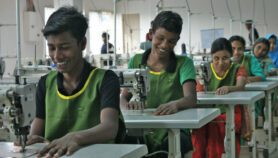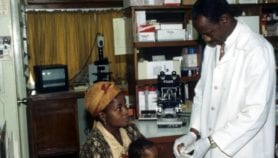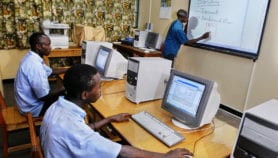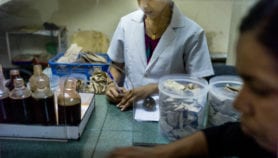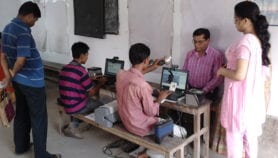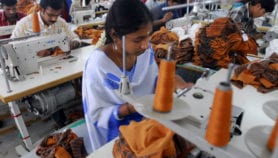By: David Dickson
Send to a friend
The details you provide on this page will not be used to send unsolicited email, and will not be sold to a 3rd party. See privacy policy.
More medical research is needed for tackling the diseases of the world's poor. But so too is attention to the social factors behind disease and its treatment.
Later this week, a group of school children in Arusha, Tanzania, will each be handed a small reflector to carry on their way to and from school. The intention is to improve the safety of their journey to and from classes. But the gift is also intended to highlight the shockingly high level of road accidents in developing countries, one of the many by-products of globalisation as countries across the world embrace the car economy.
The reflectors are being provided by the Global Forum for Health Research, a Geneva-based body set up in the 1980s to draw attention to the massive health research needs of developing countries — and whose most recent effort has been to document the high level of road accident statistics. Much of the work of the forum, which holds its annual meeting in Arusha this week, has been to increase public and political awareness of the gap between levels of funding for research into the needs of rich and poor countries.
In particular, it has made considerable efforts over the past few years to publicise the simple fact that each year, only 10 per cent of the US$70 billion spent world-wide on health research by both the public and private sectors is allocated to projects investigating the diseases responsible for 90 per cent of the world's health problems — the so-called 10/90 gap. This issue will, as usual, be high on the agenda of the annual meeting, to be attended by more than 700 public-health specialists from 100 countries.
But the decision to focus on the health dangers of road accidents — and to do this by highlighting a simple social act, namely carrying a small reflector, by which these dangers can be reduced — is also intended to underline the fact that reducing the threats to ill health in developing countries is not just a question of encouraging more research. It also requires attention to the social context in which health problems arise. And tackling this social context requires a political commitment that is, in many ways, as important (and difficult) to secure as extra financing.
The cost of preventable risks
This need to remain aware of the social dimension of health has a number of aspects. One is the extent to which death and ill-health in many parts of the world are still caused not, primarily, by disease, but by avoidable risks in the social environment. Such dangers, for example, were the main theme of the most recent World Health Report, published last month by the World Health Organisation (WHO) in Geneva. In particular, the report identifies a 'top 10' of major preventable risks, including factors such as childhood and maternal underweight (due to a lack of food), unsafe sex (the main source of HIV/AIDS infection), unsafe water used for sanitation and hygiene, and the smoke both from inhaling tobacco and from indoor cooking.
Overall, the WHO report points out, these figures contribute substantially to about 40 per cent of the 56 million deaths that occur across the world each year. Furthermore, it emphasises that the burden from such preventable risks is carried almost exclusively by the developing world. There are, for example, about 170 million children in poor countries that are underweight as a result of a lack of food. Overall, the report estimates that the risks it reviews reduce life expectancy by an average of five years in industrialised countries — but by twice this length of time in developing nations.
The moral of the WHO report is clear. The world needs to achieve a significantly better balance between the prevention and the treatment of disease through reducing the major risks to public health. The reasons for this imbalance are many, and some are relatively obvious — such as the lack of commercial incentives for disease prevention, in contrast to the lure of profits that motivates the producers of pharmaceutical and other forms of treatment. But greater efforts by political bodies and health authorities to integrate prevention into health strategies could save a substantial amount of the funding currently required to pay for the treatment required when prevention is ignored.
Need for research capacity building
If health care has social dimensions that require greater attention than is usually given, so too does health research. One area of need that will be discussed at the Global Forum meeting in Arusha is capacity building for medical research. There is a growing awareness that effective health research requires not only an injection of adequate funding. Equally necessary is the infrastructure required to ensure that such funds are used effectively.
The developing world has many top-level research institutes producing high-class research. At the same time, however, too many research laboratories are having to work with outdated equipment, dilapidated buildings, pitifully low salaries for research staff, and a lack of technical assistance. Again the reasons for this neglect are complex, ranging from the costs of structural adaptation policies imposed on many countries by western banking institutions over the past two decades, to a feeling that research is a luxury that developing countries cannot afford.
Whatever the reasons, however, the result has been a lack of political commitment to the essential need for a solid research base on which disease reduction programmes can be built. Again, this is not just a question — as many Western aid agencies have discovered to their cost — of pouring money into such research. It is also a question of paying adequate attention to the many social parameters, ranging from the need for a robust and effective educational system to an adequate and secure salary structure, on which an effective research system depends.
The social conditions for ethical review
There are other areas that require greater attention to the social aspects as well. Take, for example, the question of the ethics of biomedical research, the topic of a new dossier launched on this website last week (see Ethics of research dossier). Here it is one thing for politicians and government regulators to impose requirements that all clinical research should meet high standards of ethical review. It is another, as many bioethicists are now coming to realise, to ensure that the social conditions exist that allow such review to be adequately carried out.
And in another field entirely, there is the question of intellectual property rights and their impact on access to essential medicines. This, too, will be a key focus in Arusha (which will, for example, see the launch by the Rockefeller foundation of a new Centre for Management of Intellectual Property in Health and Development).
In all such circumstances, it is becoming clear that the social sciences have as much to offer as the medical sciences in improving health care in the developing world. All the more reason to welcome a new initiative in the United States intended to ensure a more integrated approach to the world's health problems by incorporating disciplines such as economic and political science into thinking about public-health (see Call for new 'global health science'). And all the more reason to insist that, important as it is, extra funding for medical research is a necessary but not sufficient condition for achieving the health-care improvements that the world desperately needs.
© SciDev.Net 2002



